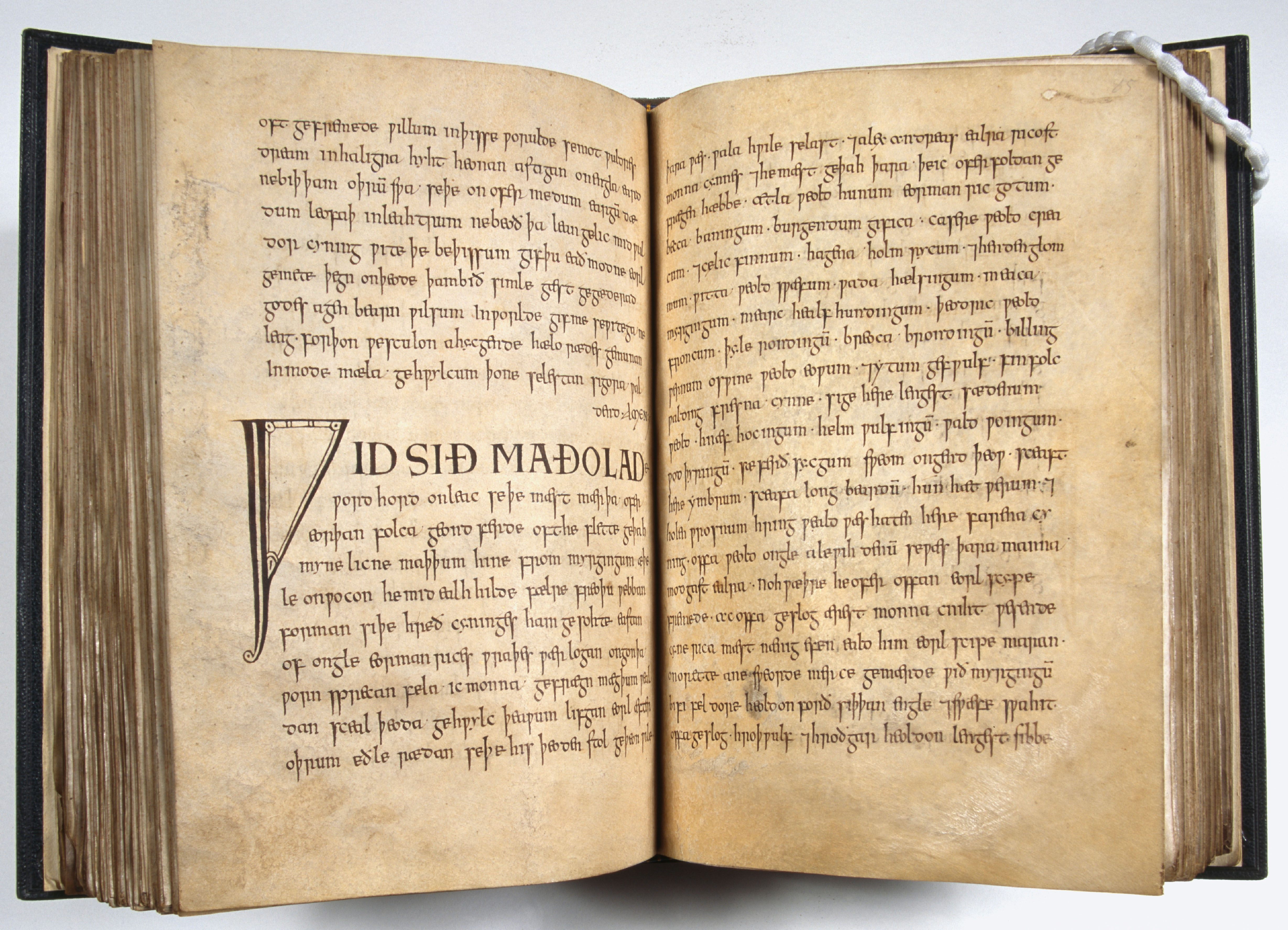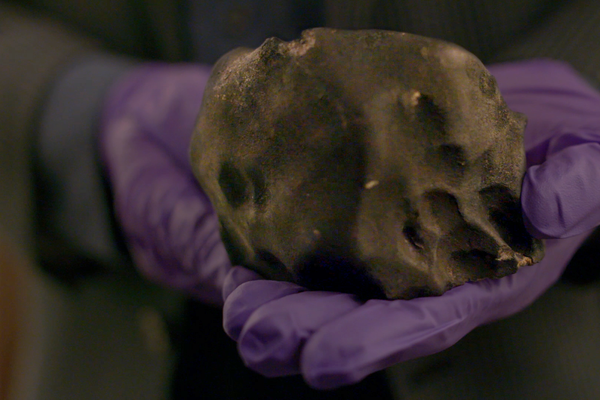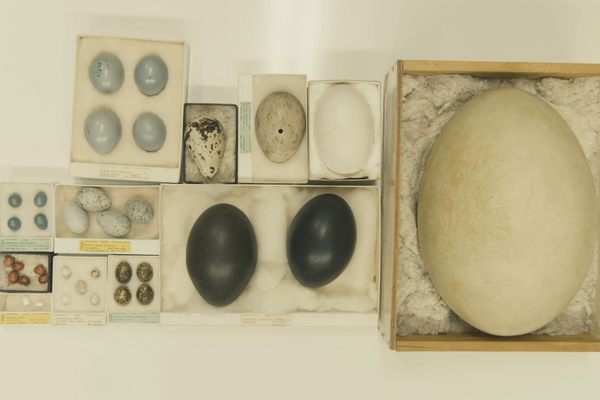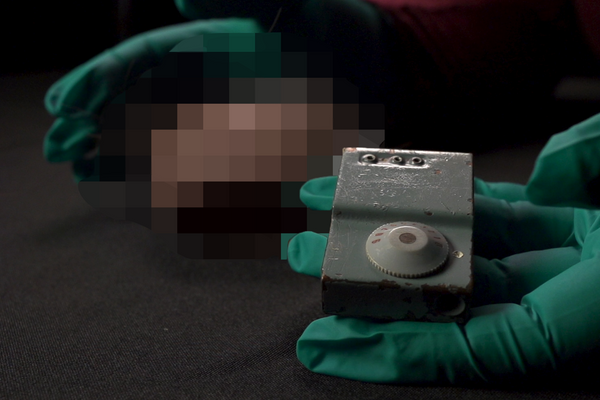One of the World’s Most Irreplaceable Books Was Used as a Cutting Board
The Exeter Book also once served as a coaster.

The Exeter Book, inscribed in the 10th century, is a rare treasure. Many scholars consider it one of the building blocks of English literature. But it’s suffered damage along the way that goes far beyond the usual wear and tear. For one thing, one of the book’s previous owners used it as a cutting board. And an entirely different person used the book as a coaster, which left a literal lasting impression: a ring that soaked through the pages.
To understand how horrifying that is, it helps to know what the Exeter Book contains. Though the Anglo-Saxon period in England lasted for roughly six hundred years, not many Old English (think Beowulf) manuscripts from that era survived. As the longest and oldest of four manuscripts that contain poetry, the Exeter Book is a particularly crucial remnant of a once-rich oral tradition.
The Exeter Book has it all, though: religious odes, tragic elegies, and a surprising number of riddles where the punchlines are jokes about penises. For example: “A curiosity hangs by the thigh of a man, under its master’s cloak. It is pierced through in the front; it is stiff and hard and it has a good standing-place. When the man pulls up his own robe above his knee, he means to poke with the head of his hanging thing that familiar hole of matching length which he has often filled before.” (The “answer” is a key.)
But it seems that at several points throughout history, the book fell into the hands of someone who didn’t appreciate it that much. While the first few pages of the book are missing, the opening pages that are intact have deep knife marks—which suggests that the book may have been used as a cutting board. Several folios of the book are stained with a circular ring that bled through the pages, too.
The most popular theory to date holds that someone set a beer down on the book’s unbound pages, staining it irreparably. Alternatively, it could have been a pot of glue.

It’s unclear who the culprits were, especially given that the book has spent most of its existence in the Exeter Cathedral library. According to Anglo-Saxon scholar Patrick W. Conner, Anglo-Saxon writing would have been incomprehensible to most people by the 13th century. The book went unread for centuries, and its large size apparently made it a useful countertop.
The book was practically rediscovered in the 19th century, thanks to increased interest in the Anglo-Saxons. The Exeter Book’s most famous fan, J.R.R. Tolkien, used a term from the book to define the fictional world of his legendary creation, The Lord of the Rings. In the poem Christ I, one line reads “Hail Earendel brightest of angels, / over Middle Earth sent to men.” Luckily for LOTR fans, whoever left their cup on the Exeter Book didn’t make a habit of it.
Gastro Obscura covers the world’s most wondrous food and drink.
Sign up for our regular newsletter.






































Follow us on Twitter to get the latest on the world's hidden wonders.
Like us on Facebook to get the latest on the world's hidden wonders.
Follow us on Twitter Like us on Facebook